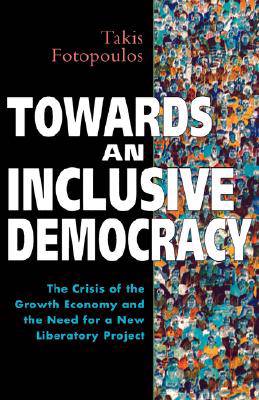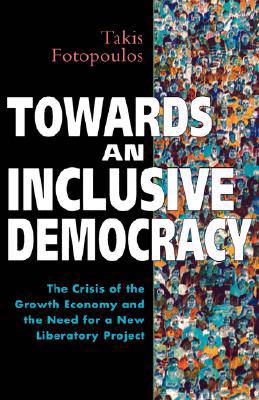
- Retrait gratuit dans votre magasin Club
- 7.000.000 titres dans notre catalogue
- Payer en toute sécurité
- Toujours un magasin près de chez vous
- Retrait gratuit dans votre magasin Club
- 7.000.0000 titres dans notre catalogue
- Payer en toute sécurité
- Toujours un magasin près de chez vous
Towards an Inclusive Democracy
The Crisis of the Growth Economy and the Need for a New Liberatory Project
Takis Fotopoulos, Takes Photopoulos
135,95 €
+ 271 points
Description
Why have man and nature drifted apart? This book traces the causes of the present crisis in the process of marketization that was initiated two centuries ago, the establishment of the market economy system and the present growth economy. What marks the very foundation of every aspect of the current crisis is the concentration of power in the hands of various elites. The internationalization of today's market economy has caused significant changes in the world's economic and political structures and only furthered the concentration of economic and political power. The solution to the problem of concentration of power cannot be found inside the system that created it - the market/growth economy. Therefore, the way out of the present crisis can only be found from without rather than from within the present framework. A true democracy today can only be derived from a synthesis of two major historical traditions, the democratic and the socialist, along with the radical green, feminist and libertarian traditions. To this end, this book offers a new vision of an inclusive democracy and sketches its political and economic contours, as well as its philosophical foundations. On the threshold of a new millenium, the development of a new liberatory project, which would represent a synthesism as well as the transcendence of major social movements for change in this century, is imperative. Takis Fotopoulos taught political economics for many years, and is now the Managing Editor of Democracy and Nature (formerly Society and Nature). He is the author of Dependent Development: The case of Greece, The Gulf War; The First Battle in the North-South Conflict and The Neoliberal Consensus.
Spécifications
Parties prenantes
- Auteur(s) :
- Editeur:
Contenu
- Nombre de pages :
- 400
- Langue:
- Anglais
- Collection :
Caractéristiques
- EAN:
- 9780304336289
- Date de parution :
- 05-05-98
- Format:
- Livre broché
- Format numérique:
- Trade paperback (VS)
- Dimensions :
- 136 mm x 216 mm
- Poids :
- 453 g

Les avis
Nous publions uniquement les avis qui respectent les conditions requises. Consultez nos conditions pour les avis.






